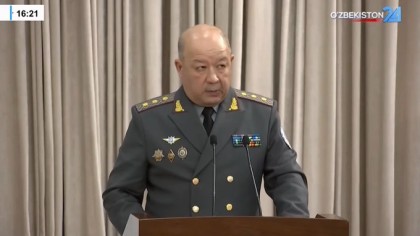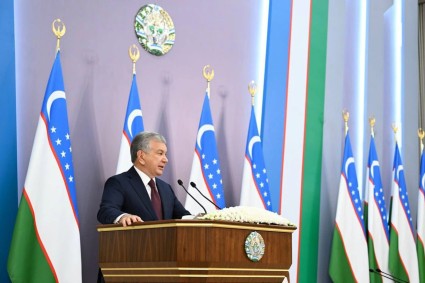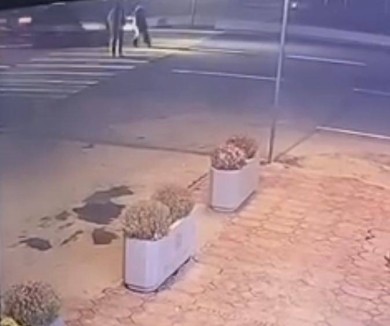The Central Asian countries are working on creating a critical metals (CRM) production hub, Ural Yusupov, Deputy Minister of Mining and Geology of Uzbekistan, said at the Central Asia-European Union Economic Forum.
"Central Asia has significant reserves of critical materials, but if each country were to independently mine, process, and manufacture high-value-added products from these minerals, some projects may prove economically unviable," he added.
"For example, some deposits in Kazakhstan, Turkmenistan, or Kyrgyzstan may not be economically viable on their own. But if their raw material bases are combined into a single processing complex, the project could have significant potential for the region as a whole. Therefore, I believe that the creation of such a hub will make Central Asia very attractive to European, American, and other international investors," Ural Yusupov emphasized.
Geodata for CRM Extraction
Kimmo Tiilikainen, Director of the Geological Survey of Finland (GTK), spoke at the forum's roundtable discussion on critical materials. The agency is a partner in the new Data for CRM project, signed during the forum. As previously mentioned, the project aims to strengthen the geodata management capabilities of Central Asian countries.
One of the project's goals, according to Tiilikainen, is to create a data architecture: take existing information—geochemical, geophysical, and geological data—and then build a system based on it that can integrate new data and make it accessible for further exploration.
"It's important for investors to have external, independent results—the prospects of deposits and projects," the expert noted. "And this isn't just a narrow view, like, 'Okay, we can find one valuable material here, or something else.' We'd like to help them think more broadly—what other materials might be useful in the rocks we have now."
Crime Risks in the Extraction, Processing, and Export of Critical Commodities
Giovanni Broussard, Acting Head of the UNODC Global Environmental Crime Programme, discussed how to minimize the risk of crime in mining operations.
"In any part of the world, the CRM supply chain is extremely vulnerable to infiltration by organized criminal groups and entities operating outside the legal framework. This industry is often subject to risks of nepotism and corruption. This significantly undermines its legitimacy, especially in the digital age, when there is a strong demand for transparency and integrity," he said.
Central Asia, Giovanni Broussard noted, has a rich CRM base—zinc, copper, manganese, uranium, and rare earth elements. "The resources are readily available, but there is a lag in developing a comprehensive regulatory framework and governance structure to ensure this important opportunity is realized." "In a context where demand for such minerals is high, prices are soaring, and resource availability is limited, this creates an ideal environment for organized crime groups or entities seeking to operate outside the law to penetrate and establish a niche in the sector," the expert emphasized.
Therefore, he noted, it is important for Central Asia to improve the integrity and transparency of the value chain. This could be achieved, for example, by making the licensing system more transparent, he noted.
"Furthermore, agencies responsible for investigating crimes in the mineral sector likely still need to gain a full understanding of the real risks in this area and establish closer cooperation with regulators, who are currently working to improve their governance systems," added Giovanni Broussard.
The expert noted a joint project by the EU, UNECE, and UNODC, which aims to streamline and make transparent the supply chains of critical minerals using the UN Resource Classification Framework. This will simultaneously strengthen countries' ability to detect and investigate crimes in the mineral sector.
The project will also create a collaborative network between governments, businesses, international organizations, and civil society to support the legal and sustainable operation of the industry and prevent criminal risks.
EBRD Programs to Support the Extractive Sector
Hakob Kagramanyan, Lead Banker in the Natural Resources Department at the European Bank for Reconstruction and Development, discussed two programs that support the extractive sector, including in Central Asia.
Last year, the EBRD established the €100 million Junior Mining Program (JUMP). It is designed to support smaller mining companies. Funds can be used to finance exploration programs, feasibility studies, and environmental studies.
"This is done through equity investments: we become a minority shareholder and operate as a regular private equity firm with an investment horizon of 5 to 7 years, supporting the company's development," he explained.
"A good example of how the program works is our investment in the Australian junior company Saritogan Graphite, which operates in Kazakhstan. This is potentially one of the largest natural graphite deposits in the world. We invested last year and this year and became the company's second-largest shareholder. Our funds are being used to prepare a feasibility study, which will be ready next year," said Akop Kagramanyan.
An EBRD official also spoke about the program the bank is implementing jointly with the EU: "This is a grant program aimed at supporting Central Asian governments and businesses in expanding their activities in the critical materials sector. Last December, we signed a €3 million program, and this morning, another €3 million was added."
Currently, he said, three such projects are being implemented in Central Asian countries.
The first is in Uzbekistan. The new project, signed during the Economic Forum, will enable the practical implementation of the Subsoil Code law adopted earlier this year.
The second project is a regional laboratory for critical materials, planned for construction in Kazakhstan. Together with the EU, the EBRD is financing the feasibility study for this laboratory. The third is in Tajikistan, where a gap analysis in the country's mining regulation will be conducted jointly with the Ministry of Construction and New Technologies.
Uzbekistan and the European Union established a strategic partnership in the field of critical raw materials in 2024 and signed a roadmap. It covers actions to create sustainable raw material value chains, support environmental standards, social responsibility and create new jobs in the CRM extraction process.















